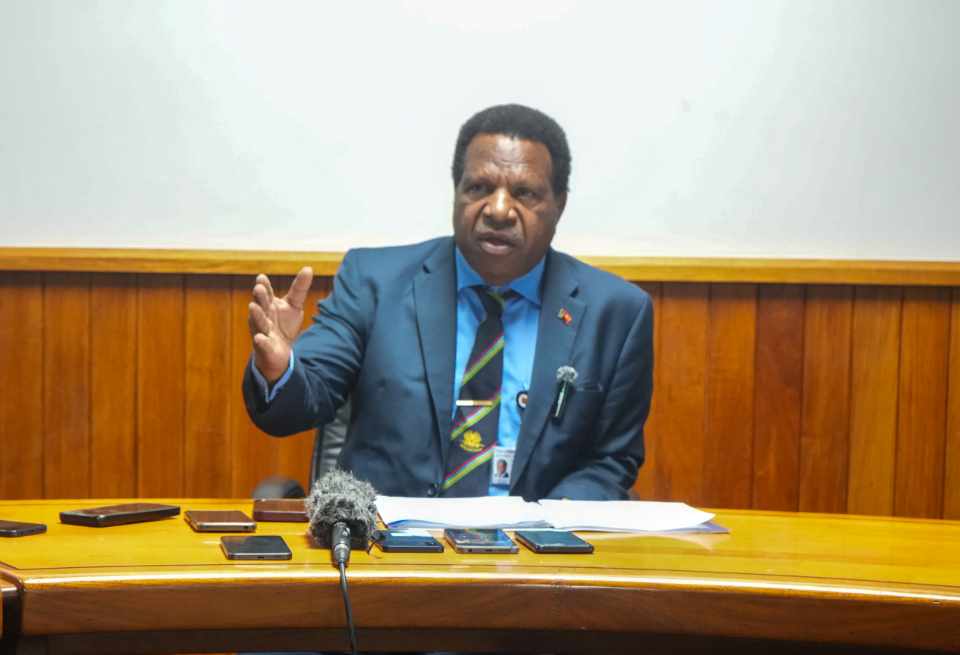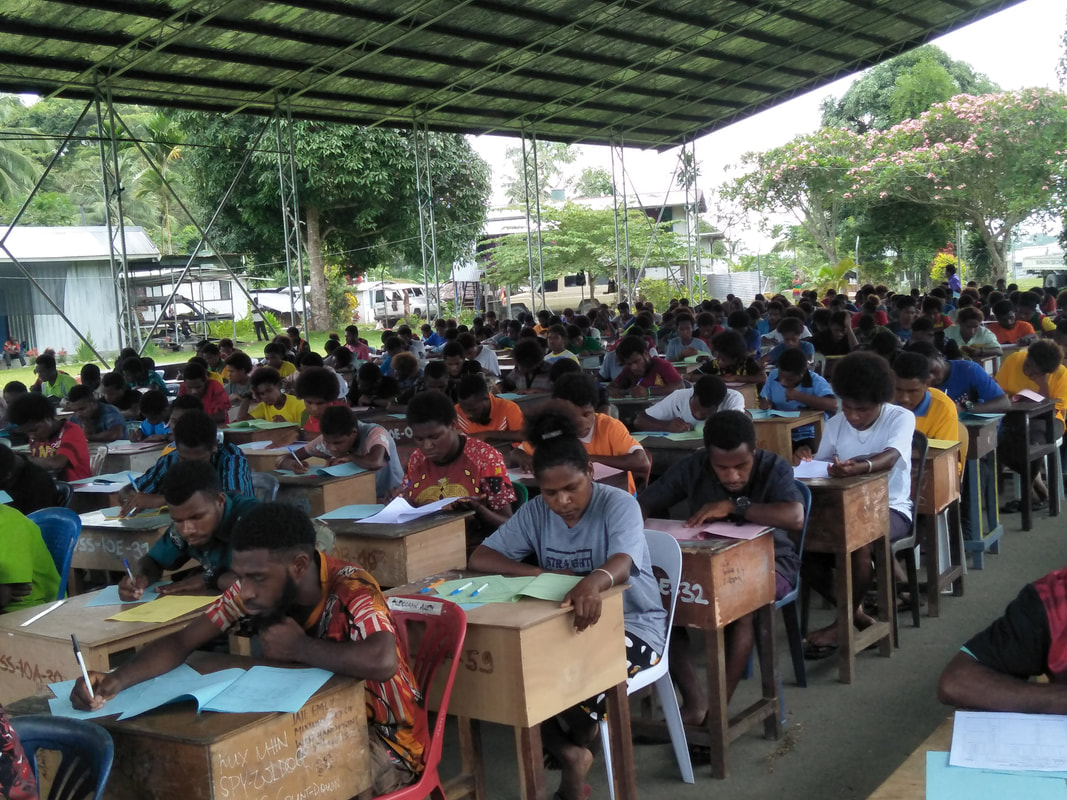The Department of Education is moving ahead with plans to phase out the long-standing selection process between Grades 8 and 9, and Grades 10 and 11, beginning with Grade 8 selections in six provinces.
Education Secretary Dr Uke Kombra confirmed that Enga, Western Highlands, Jiwaka, Hela, Eastern Highlands, and Western provinces will begin implementing the reform this year, allowing all Grade 8 students to automatically progress to Grade 9 in 2026.
He explained that other provinces will adopt the same approach in 2026 and 2027 once they are ready to implement the policy.
Dr Kombra said the reform aims to ensure that “every child who begins school in prep must be able to continue through to Grade 12,” marking a major step toward achieving universal basic education in Papua New Guinea.
“There should be no dropouts or selections between Grade 8 and 9 and Grade 10 and 11. Every student has the right to complete twelve years of education,” he said during a press conference in Port Moresby.
According to Dr Kombra, the decision was influenced by provinces that already have high transition rates.
“For example, if a province already has 80 percent of its students continuing to Grade 9, this policy now formalizes that the remaining 20 percent will also move forward,” he said.
The department is also emphasizing Flexible Open and Distance Education (FODE) and Technical and Vocational Education and Training (TVET) as alternative learning pathways for students outside the conventional classroom system.
“FODE is available in every district, every LLG, and every province,” Dr Kombra said. “Students who can’t enter the normal system can take the FODE or TVET pathway and still reach Grade 12. All pathways are equal.”
While the selection system will be phased out, national examinations will remain part of ongoing student assessment.
“Exams are not being removed,” Dr Kombra clarified. “Assessments are part of the learning process we must know how far each student has achieved the content taught in school.”
He emphasized that the reform focuses on access and inclusiveness, ensuring that no child is left behind in completing twelve years of education.
Addressing concerns about exam malpractice, Dr Kombra said the department has undertaken an independent review of the examination system, from question preparation to distribution, to strengthen integrity and prevent cheating.
“There are penalties in place for schools, teachers, and students involved in cheating,” he warned, adding that all examination papers and certificates are processed overseas to maintain security and authenticity.
Dr Kombra thanked teachers and schools for their continued cooperation and commitment to education reforms despite logistical challenges.
He said the gradual rollout of the policy is part of the National Education Plan, aimed at reducing dropouts, promoting equality, and building a more skilled and educated workforce for the future.






